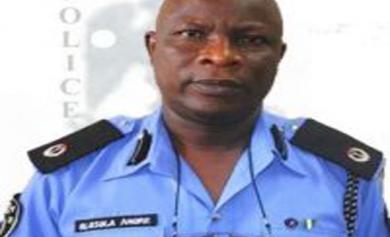
The Police have denied claims by the co-founder of the militant Islamic sect, Boko Haram, Mr. Ali Tishau, that he had given useful information to the police on the spate of bombings that occurred in the country recently.
?
The Force Public Relations Officer (FPRO), Mr. Olusola Amore, Deputy Commissioner of Police (DCP) stated this while addressing a press conference yesterday at the Force Headquarters, Abuja.
?
According to him, “There is no iota of truth in the claim that the self acclaimed Boko Haram member has given useful information to the police on the spate of bombings that occurred recently.
?
“Furthermore, the suspect Mr. Ali Tishau had been requested for on the June 27, 2011, and was released on July 7, 2011, to a sister organisation for investigation in the spirit of information sharing. To date he has not been returned to the police.”
He explained that, “There was never a time he gave any advice or warning in advance. He was a suspect who is being investigated, interrogated and some of his colleagues who were investigated by the outfit had been charged to court and others remanded in prison.”
?
The police, the spokespersons said, had not reacted to the falsehood being peddled and the insinuations arising from the orchestrated interview of the suspected Boko Haram member, “In the interest of the nation, its security agencies and loyalty of the police force as an organisation to the country.”
?
On the extent of cooperation the suspect gave the force and why efforts were not made to get him back from the undisclosed sister agency, Amore said, “The practice is that you return the suspect to the organization from whom the suspect was collected. We’re still expecting that the suspect will be returned.
?
“You don’t talk of cooperation in investigation because it is about gathering facts so he has made his own statement to the police and the police have already gathered that statement and it was at that stage that he was requested for and we believed that they can obtain some information and intelligence form him.”
?
He argued that it was traditional for security agencies to share suspects pointing out, however, that they are returned to the primary constituency where they were obtained so the investigation can be concluded and if something is found on the suspect, he would be charged to court or released.
?
Amore explained that, “The suspect was not released on bail by the police; so it is not that we need to go after the person who took him on bail or his surety. Both the police and the other security agencies are in the service of this nation.
?

